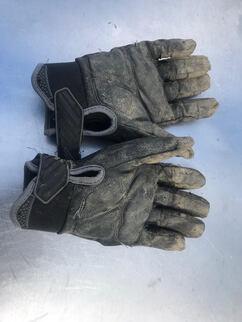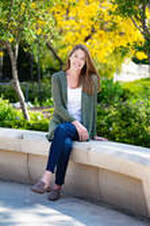|
It’s hard to multiply fractions when you’re wondering if your first mom remembers you. Ruminating thoughts of “Do I have biological siblings?” may make it challenging to focus while studying World History. Believing one family didn’t want you and being terrified to disappoint your current family might make it near impossible to complete or even begin a science project. Identifying with the perception of your birth-culture’s reputation for braininess while struggling to maintain a C average, may lead to feelings of defeat and inadequacy, culminating in a “why bother” attitude. Adopted kids and teens are thinking about their biological families, even if they aren’t talking about it. They spend time wondering if they have genetic brothers and sisters they might look like, where their biological family lives and whether their birth parents are alive. These are just a few discoveries I’ve uncovered in my collaborative work with adoptive parents and adopted kids. During our work together I help parents act as non-judgmental, curious detectives as we uncover reasons that explain behaviors. Once parents have a better understanding of the adoptive experience and the language to talk about grief, loss, separation, trauma and identity, they become their child’s best advocates. Adoptees experience trauma – even when they are adopted at birth or shortly after. Older children adopted after multiple placements may experience further trauma. If separation from one’s biological family occurs before language develops, the memory is stored in the brain as an “implicit memory” and a child can’t explain why they are feeling a certain way. This is where attuned parents can help put words to an otherwise word-less memory. As Bessel van der Kolk, noted trauma expert and author of The Body Keeps the Score, wisely explains, “We have learned that trauma is not just an event that took place sometime in the past; it is also the imprint left by that experience on mind, brain, and body. This imprint has ongoing consequences for how the human organism manages to survive in the present. Trauma results in a fundamental reorganization of the way mind and brain manage perceptions. It changes not only how we think and what we think about, but also our very capacity to think.” We also know that our brains change throughout the lifespan and much of that change can happen in the context of relationships. Adoptive parents can help their children by being open to their questions, feelings and struggles. They can lead conversations about the adoption even when their kids aren’t talking. By doing so they let their children know it’s ok to ask questions and it’s ok to experience whatever feelings they have. When adoptive parents have done their own work around adoption related issues, educated themselves about the grief and loss inherent in separation, and seek support from an adoption-informed therapist when necessary, they are best prepared to help their kids thrive.
2 Comments
 Here are my gloves. Here are my gloves. The other day I was listening to the latest episode of the podcast Adoptees On. I don’t remember how I first learned about the podcast, but I remember where I was when I heard it: walking the dam in Los Gatos. It was season one, episode 1: Carrie. I walked and listened, knowing my life was never going to be the same. I had found my people. Later, much later, I went to my first adoptee conference in Indiana. I felt like a fish that was finally in the right tank of water. I could breathe. After a lifetime of feeling weird or different I saw that there were a lot of other people who felt like me. What an incredible relief. It’s like I had been born wearing a girdle and someone showed me that I could take it off. I could expand. Marci Purcell has the most beautiful eyes. They see you. I don’t remember where I first met her because all I remember was the sensation of stillness, of love. It may have been at Indiana. It may have been at an AKA conference. All I know is that I felt seen. As a human, this is a remarkable experience, and as an adoptee it can be life-changing, life-saving: to be seen in a way that feels like mirroring. I wish, of course, AKA’s conference was happening this year for so many reasons. It’s healing and informative for me to be with other adoptees, and it is also healing and informative for me to be with other members of the adoption triad so I can better get a sense of how really we are on the same page: we want the best lives possible for the children of the world, and together we can work at defining what that means. Together we can find ways to fully appreciate each other. I hated first mothers until I met one. I had thought the mother who had given birth to me must have hated me to put me up for adoption and then to deny contact later in life, but then I heard the stories of other first mothers, and I understood I had no idea what was going on in their heads, no idea of the depth of their trauma and grief. If my first mother were alive, I would stop bothering her. I have stopped reaching out to her family. They do not owe me anything, and I am--yes, I am going to say it because I truly believe it is true--lucky to be alive, lucky to have the life I have. I could have taken myself out of the game. It’s tempting, as an adoptee sometimes, to disappear. But the will to stay and the decision to make the most of the life you have is an amazing experience—at least it was for me. I still am a body and a brain that has fury and sudden changes in emotions, sudden dips into depression, but I am more generous with myself. It’s okay, Baby, I say. Hold on. Do the next right thing. Hold on. You are not alone. The more kind and real I am to myself, the more kind and real I am to others, and the more kind and real my life becomes. More and more I feel I am living from my heart instead of from my dysregulated nervous system, but, holy cow, this is a process. Talk about baby steps! One step forward, two steps back. Repeat. I had deep issues with my parents who adopted me until I wrote about my thoughts and actions and came to terms with my fury and their confusion. Now I just wish my mom were alive so I could tell her I love her with all my heart, my raging, broken, loving heart. I do tell my dad who is still alive, and it is a relief. He is not my biological father, but he is the father I got, and either I can rage against the dealings of the cards or I can be in my body, in my life, and love the best that I can. I love you, Dad, even though we are so different. I love you even though we are so similar. When Marci asked if I would write a piece for AKA’s newsletter, I felt, again, seen. She believes I have something to say, something of worth. These things matter: having a sense of worth, feeling seen. At the end of the latest Adoptees On episode (the latest now, on April 14, 2020), Haley asked Kevin for his recommended resource and he started to talk about me. He talked about the time we had lunch; he talked about my book, the writing classes I teach. He talked me UP, and I, of course, cried. We adoptees see each other. We support each other. We lift each other UP. And when we gather as a triad, the opportunities for support and understanding are endless. Anne Heffron, author of the memoir, You Don’t Look Adopted, is currently writer-in-residence, farmer-in-training at Spirit Hill Farm in Sebastopol, California. She is a writing coach for people in the U.S., Australia, New Zealand, England, and Canada. She has a 75-minute class she calls Write or Die that is meant to get you off and running on your writing project (and in your life). She has no recent picture of herself because she has been on her own with the the chickens and the turkeys for months now it seems and does not love selfies. Hence the photo of her gloves. |
Back to Main BlogNewsletter ArchivesBlog Archive
July 2024
Categories |

 RSS Feed
RSS Feed